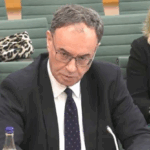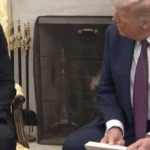A leading business organization is advocating for a significant reduction in the corporation tax rate for companies involved in green technologies, proposing a cut to 10% from the current rate of 25%. The Confederation of British Industry (CBI) argues that this reduction will attract more investment in environmentally friendly sectors amid ongoing economic challenges.
In addition to the tax cut, the CBI is urging the government to implement several measures to support green investment. These include a “green innovation credit,” which would provide a 40% tax relief for companies investing in low-carbon technology research and development, and an “enhanced green super-deduction” of at least 120% for businesses constructing factories focused on electric vehicles (EVs) and battery manufacturing.
Rain Newton-Smith, the CBI’s chief executive, stated that these initiatives would position the UK as an appealing destination for investments in green technologies. “The Budget can provide a tone-setting moment in the Government’s growth mission,” she said, emphasizing that these measures would help stimulate growth while maintaining economic stability.
The CBI estimates that the proposed 10% corporation tax rate for green technology manufacturers would cost the government approximately £238 million annually. Meanwhile, the super-deduction initiative is projected to have a £389 million price tag. The organization is also advocating for a reduction in VAT on public EV charging from 20% to 5%, costing the Treasury an estimated £33 million. Furthermore, the CBI supports eliminating VAT on home improvements aimed at enhancing energy efficiency, such as double-glazing.
These proposals align with calls from the Institute for Public Policy Research (IPPR), which has urged for changes to borrowing rules. The IPPR suggests that by focusing on the UK’s net worth rather than solely its debt, the government could unlock an additional £50 billion in borrowing capacity. This funding could be invested in infrastructure, energy, and healthcare to enhance productivity.
Carsten Jung, an economist at the IPPR, remarked that the UK is trapped in a “low growth trap” due to years of underinvestment. He called for the new Labour government to prioritize long-term investment strategies.
Shadow Chancellor Rachel Reeves has indicated a willingness to revisit the government’s borrowing rules, emphasizing the importance of fostering both public and private investment in green technologies. She expressed hope that the Office for Budget Responsibility would consider the long-term effects of capital investment at the upcoming Budget announcement.
These proposals highlight the urgent need for the UK government to provide the necessary fiscal and policy support to facilitate a transition to a low-carbon economy and achieve its ambitious net-zero targets.









